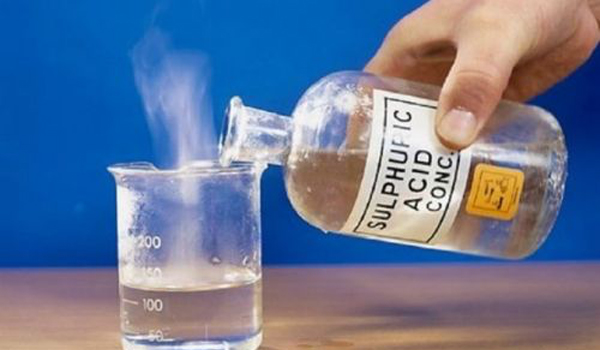Is Sulfuric Acid the New Water?

February 2, 2022
One of the main problems in astrobiology is whether life can support biochemistry with solvents other than water. We understand how important water is for life on our planet, and how it is required for all biological activity, beginning with processes in the cells of microorganisms, plants, and animals. However, there are certain disadvantages to using water as a solvent.
The beginning of life in water is particularly challenging since it makes organic synthesis more complicated and energy-intensive. Because liquid H2O is so plentiful on our planet, life has discovered a method to get around its more difficult qualities. Water would also be predicted to be a convenient solvent for most life elsewhere in the Universe, given its abundance.
However, the intriguing issue remains: Could other liquids be used in the same way? William Bains and his MIT colleagues investigated the possibilities of concentrated sulfuric acid as a viable life solvent in a recent publication. Most high school chemistry students are familiar with that substance’s tendency to dissolve organic molecules.
Bains and his colleagues simulated the stability of a wide range of organic compounds subjected to sulfuric acid at quantities close to those found in Venusian clouds for their research. Their findings were depressing. At any altitude in the Venusian clouds, two-thirds to three-quarters of terrestrial biochemicals are unstable, with half-lives of less than a second! In other words, they begin to disintegrate immediately. Synthetic chemicals and a few silicon compounds were discovered to be relatively stable. This means that in concentrated sulfuric acid, chemical components thought to be important in the genesis of life on Earth would not work.
Bains and colleagues also considered the idea that bacteria transitioned from utilizing a water-based solvent to using sulfuric acid when environmental circumstances on Venus changed, which I believe is more likely. However, the researchers couldn’t understand how this could have happened, especially since Venusian bacteria would have had to rework more than two-thirds of their metabolic processes, which seems like a huge evolutionary hurdle, even over hundreds of millions of years.
I should point out that some of the authors of this research were also authors of a contentious paper that suggested the presence of phosphine in Venus’ atmosphere and received a lot of news. This new study’s strategy deserves commendation, in my opinion. They came up with a hypothesis, weighed the implications, and came to the conclusion that using sulfuric acid as a solvent for Venusian life is unlikely. That discovery, without a doubt, calls into question their earlier speculations regarding probable life in Venus’s lower atmosphere. Despite this, the researchers published their findings, which is an excellent illustration of how science should be conducted. We must follow the evidence regardless of where it leads or whether we like the results.
Source: https://www.mdpi.com/2075-1729/11/5/400